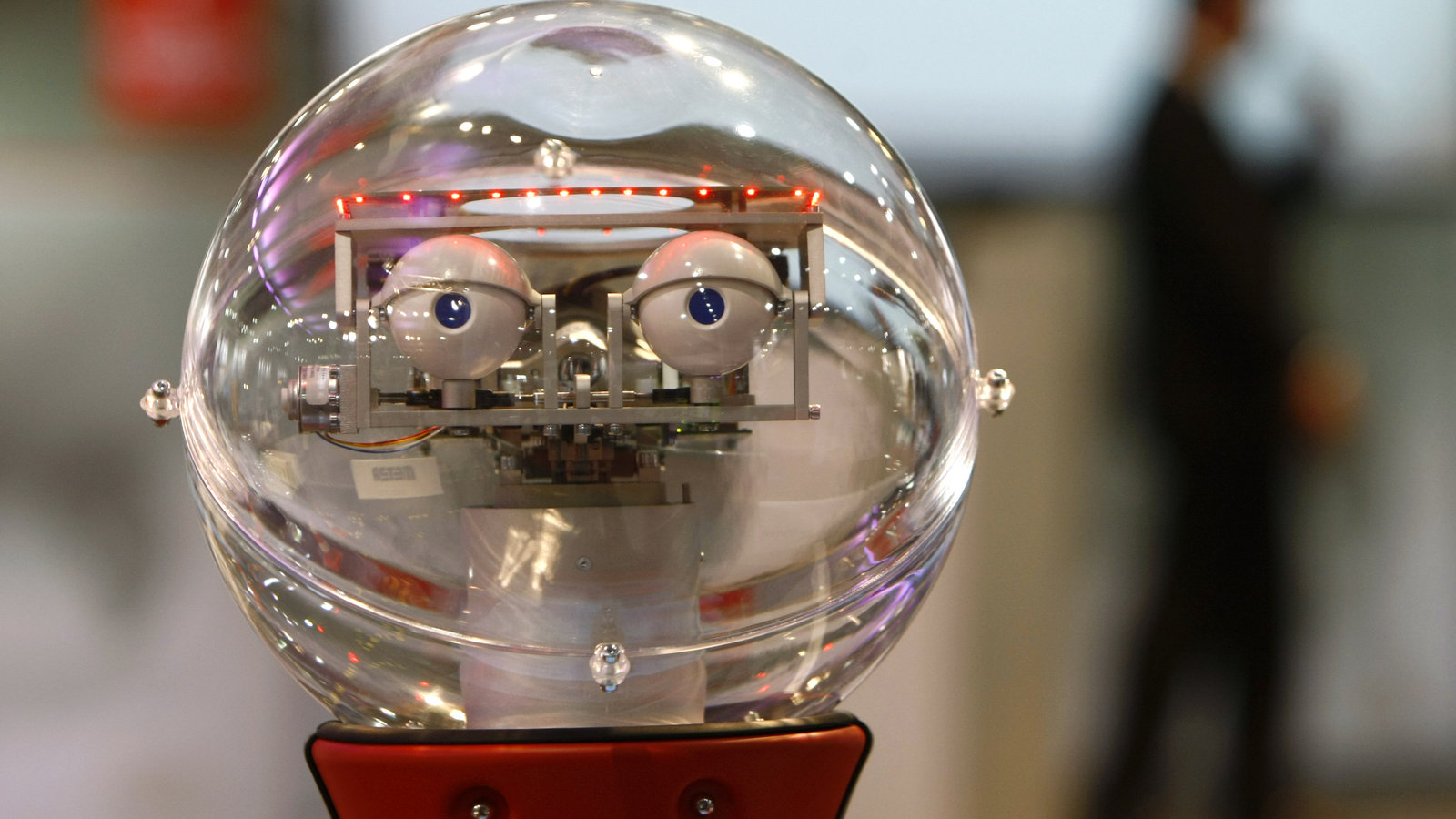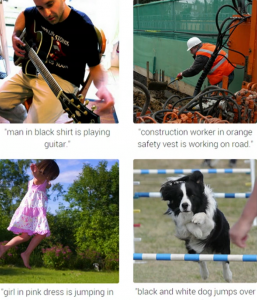The robots are coming, and they’re coming fast. In this fascinating Fresh Air interview, tech writer John Markoff talks about several ways that intelligent machines are likely to profoundly change our lives over the next few years. From self-driving cars to peopleless warehouses, intelligent machines will play major roles in shaping our world. He makes a critical distinction between artificial intelligence (AI) and intelligence augmentation (IA), two schools of research that take radically different approaches to the relationship between humans and machines. As a bonus, the interview ends with what is probably the funniest robot song ever recorded.
npr.org/sections/alltechconsidered/2015/08/20/433000643/how-close-are-we-really-to-a-robot-run-society
Category: 11.1 Where Computers Work

More jobs every day are being automated—done by machines rather than humans. In this thought-provoking Fresh Air interview, Silicon Valley executive Martin Ford says that all kinds of jobs—even many that we assume are machine-proof—are threatened by advances in hardware and software. The implications for our economy and our society are far-reaching.
http://www.npr.org/sections/alltechconsidered/2015/05/18/407648886/attention-white-collar-workers-the-robots-are-coming-for-your-jobs
 For decades researchers have experimented with machine learning—software that can improve with experience without being reprogrammed. That research has paid off in a number of applications, including the intelligent search engines that we use every day. But recent breakthroughs in a field called deep learning are likely to bring radical transformations to our lives very soon. This TED Talk by Jeremy Howard explains the technology and touches on a few applications and implications. Spoiler: there’s good news and bad news….
For decades researchers have experimented with machine learning—software that can improve with experience without being reprogrammed. That research has paid off in a number of applications, including the intelligent search engines that we use every day. But recent breakthroughs in a field called deep learning are likely to bring radical transformations to our lives very soon. This TED Talk by Jeremy Howard explains the technology and touches on a few applications and implications. Spoiler: there’s good news and bad news….
[ted id=2155 lang=en]
 The Internet makes it possible for people to collaborate on a massive scale, working together to accomplish tasks that might otherwise be impossible. The world of online collaboration is changing rapidly—and changing our lives in the process. Many TED talks and NPR podcasts have helped us to understand the applications and implications of collaborative technology. In this fascinating radio program, TED and NPR collaborate to explore collaboration by combining excerpts from several TED talks with interviews and commentary.
The Internet makes it possible for people to collaborate on a massive scale, working together to accomplish tasks that might otherwise be impossible. The world of online collaboration is changing rapidly—and changing our lives in the process. Many TED talks and NPR podcasts have helped us to understand the applications and implications of collaborative technology. In this fascinating radio program, TED and NPR collaborate to explore collaboration by combining excerpts from several TED talks with interviews and commentary.
www.npr.org/2013/07/13/197986218/why-we-collaborate
We’ve heard about how 3D printers can be used to manufacture toys, small machine parts, and even some prosthetic devices for human bodies. But as applications emerge, so do some difficult questions.
- According to this Wired story, a printed car might soon share the road with you. But for legal reasons, it might technically be a motorcycle.
- This NPR story explores some of the intellectual property questions raised by 3-D printers.
- It’s one thing to print a figurine of a copyrighted comic book character; printing a lethal weapon is something else altogether.
This NPR story explains how 3-D printers muddy the waters in the debate over gun safety.
We’ve been hearing about 3D printers for quite a while. But according to this Planet Money story on NPR, the 3D printer may soon be showing up all over the place, changing the way we live, shop, and work in profound ways.
npr.org/blogs/money/2013/01/04/168627298/3-d-printing-is-kind-of-a-big-deal
IBM’s Watson, the famous artificial-intelligence system that became a quiz show champ, is now poised to transform the fields of medicine, finance, education, and more. In some ways Watson is an industrial-strength version of Siri, the personal assistant built into iPhones. Is Watson leading us into a whole new era of cognitive computing? This fascinating Fast Company article puts Watson in the context of today’s data-driven world and speculates on a future that’s much bigger than talking smart phones.
fastcompany.com/3001739/ibms-watson-learning-its-way-saving-lives
The information explosion raises important questions about the free flow of information versus the threat to personal privacy. These two TED Talks present cases for more open information in government and medicine. Heather Brooke uses technology and old-fashioned hard work to expose government corruption; John Wilbanks argues that more medical information sharing is good for all of us. Whether you agree or not, you’ll likely find their stories interesting and thought provoking.
ted.com/talks/heather_brooke_my_battle_to_expose_government_corruption.html
ted.com/talks/john_wilbanks_let_s_pool_our_medical_data.html